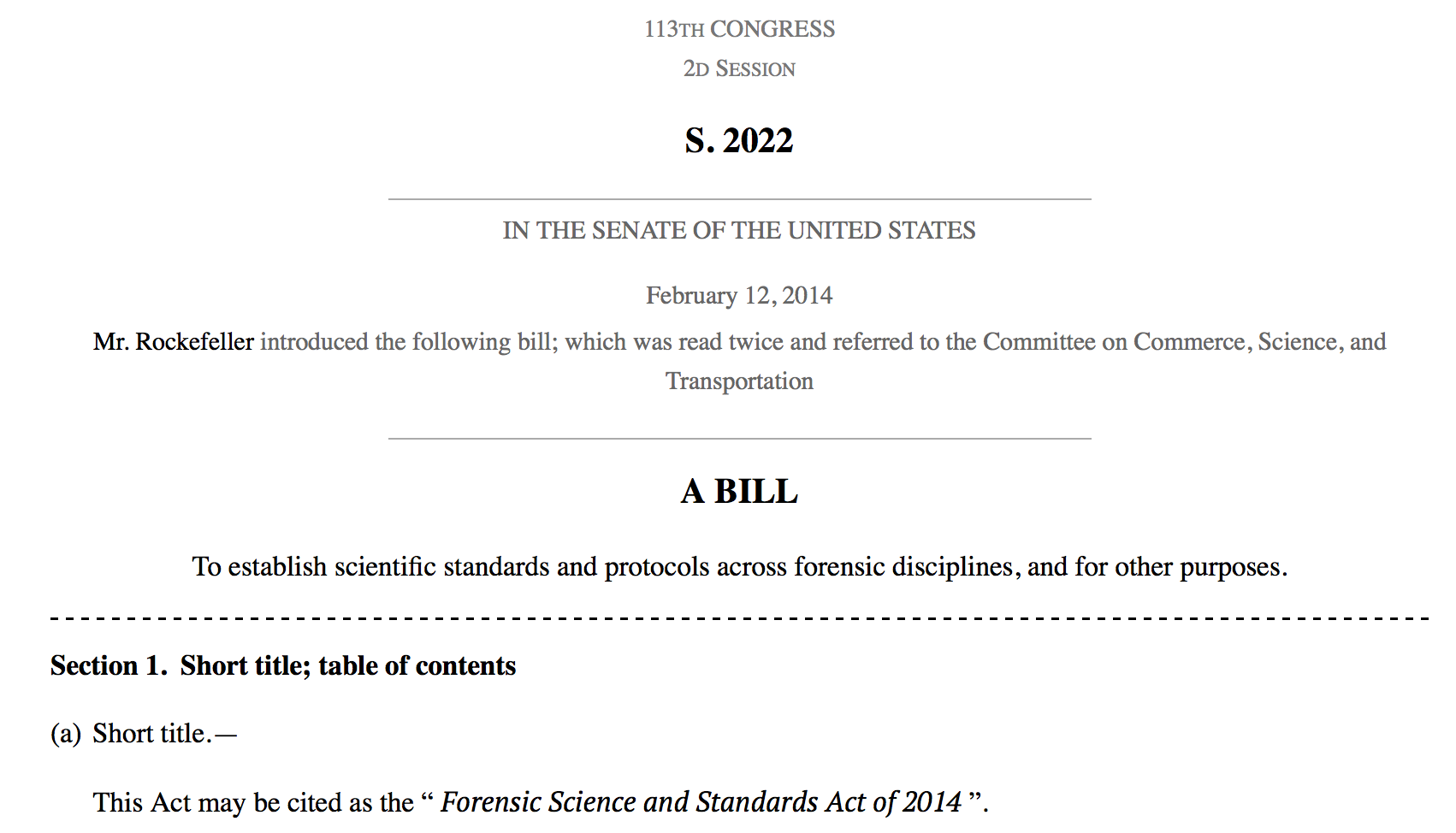Forensic Science reform is a hot topic. With the NIST OSAC efforts and many AAFS talks over the subject, it seems everyone has a solution. Last Congress, Senator John “Jay” Rockefeller IV, the Senior Senator from West Virginia a Democrat introduced his vision. It has been amended over the year as all bills are. It has made it out of the Senate Commerce, Science, and Transportation committee in the Senate. The committees assigned to this bill sent it to the House or Senate as a whole for consideration on April 9, 2014. According to govtack.us, it has 28% chance of being enacted.
You can read the current version here: Forensic Science and Standards Act of 2014:

It is a short 19 page read. The main thrust of the bill is to fund research in forensic science as well as to establish and fund a standards development organization. It will contract with the National Science Foundation to identify “the most critical forensic science disciplines…that require further research to strengthen the scientific foundation in those disciplines.” There will be a stand alone National Forensic Science Coordinating Office (NFSCO). The NFSCO will establish two Forensic Science Research Centers (FSRC) in the US to conduct research and educate. There will also be a Forensic Science Advisory Committee. There is also language recommending the promotion of accreditation and certification.
In the bill, we see the following funding for the FSRC:
Authorization of appropriations
There are authorized to be appropriated to the National Science Foundation to carry out this section—
(1) $37,000,000 for fiscal year 2014; (2) $40,000,000 for fiscal year 2015; (3) $43,000,000 for fiscal year 2016; (4) $46,000,000 for fiscal year 2017; and (5) $49,000,000 for fiscal year 2018.
Authorization of appropriations
There are authorized to be appropriated to the National Institute of Standards and Technology to carry out this section—
(1)$12,000,000 for fiscal year 2014; (2)$20,000,000 for fiscal year 2015; (3)$27,000,000 for fiscal year 2016; (4)$35,000,000 for fiscal year 2017; and (5)$43,000,000 for fiscal year 2018.


